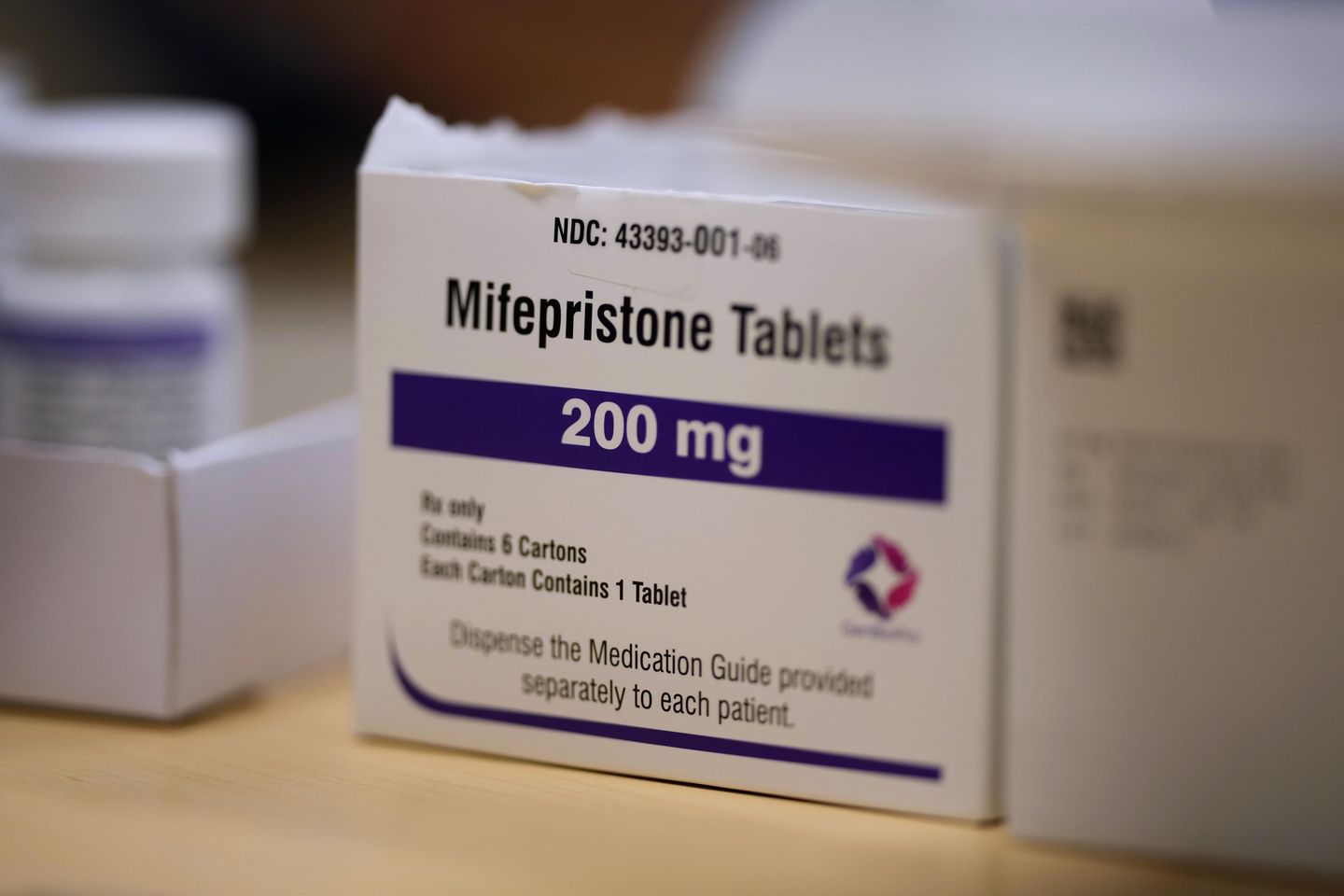
A largest-of-its-kind study found that more than 10% of women who terminate their pregnancies with abortion pills experience serious health problems, even though the drug’s warning label puts the figure at less than 0.5%.
The analysis of insurance data from 865,727 prescriptions of mifepristone from 2017 to 2023 showed that within 45 days, 10.93% of women were treated for conditions including sepsis, hemorrhaging and infection, while 2.84% ended up undergoing a surgical abortion.
“The real-world rate of serious adverse events following mifepristone abortions is at least 22 times as high as the summary figure of ‘less than 0.5 percent’ in clinical trials reported on the drug label,” said the Ethics and Public Policy Center, a conservative think tank, which released the research Monday.
The study conducted by EPPC President Ryan T. Anderson and Jamie Bryan Hall, the center’s director of data analysis, recommended that the Food and Drug Administration reinstate the safety protocols weakened under the Biden and Obama administrations to expand abortion access.
“In light of this research, we urge the FDA to reinstate earlier, stronger patient safety protocols and reconsider its approval of mifepristone altogether,” the study’s authors wrote. “Women deserve better than the abortion pill.”
The warning label for Mifeprex, the brand name for mifepristone manufactured by Danco Laboratories, says that the 0.5% figure for serious adverse reactions is based on six U.S. and four non-U.S. clinical studies totaling 30,966 women — far fewer than the number in the EPPC analysis.
The FDA-approved label is also based on data “from trials taking place more than a decade ago,” the EPPC analysis says.
“Danco Laboratories markets Mifeprex as ‘the safe and effective abortion pill,’ but our research shows that mifepristone abortion, as currently practiced in the U.S., is not safe and effective,” said the study.
The Washington Times has reached out to Danco Laboratories and the FDA for comment.
More than 5 million women have used Mifeprex since the drug received FDA approval in 2000. The drug is 97% effective in terminating pregnancies, with 3% of women requiring surgical intervention afterward, according to Danco Laboratories.
“Danco remains confident in the safety and effectiveness of Mifeprex® under the 2023 REMS that currently governs its use,” the drug manufacturer said in a December 2023 statement.
The two-drug abortion protocol of mifepristone and misoprostol has become the most common method of elective pregnancy termination, representing 63% of all U.S. abortions, up from 53% in 2020, according to data from the pro-choice Guttmacher Institute.
The FDA approved mifepristone for abortions in 2000, but with a slew of precautions, including requiring doctors to prescribe and dispense the drugs in person at their medical offices. The initial protocol also required a follow-up visit and reporting of any adverse events.
By 2023, however, those safeguards had all been eliminated, allowing the drugs to be prescribed online and delivered by mail to homes, with no follow-up requirements.
The maximum gestational age for pill-induced abortions has also been lowered from 10 weeks to seven weeks.
Our team analyzed 865,727 mifepristone abortions (2017—2023), 28 times larger than all FDA clinical trials combined.
Here’s what we found:
· 10.93% of women experienced severe or life-threatening events within 45 days of taking Mifepristone, including sepsis, hemorrhage, blood… pic.twitter.com/3EAoGf0R75
— Ethics and Public Policy Center (@EPPCdc) April 28, 2025
The study found that 0.10% of women suffered sepsis and 1.34% had infections; 3.31% were treated for hemorrhaging; 0.15% received transfusions; 0.66% were hospitalized; 4.73% visited the emergency room, and 0.22% had “other life-threatening events.”
Those figures are significantly higher than those listed on the Mifeprex warning label, which place the U.S. occurrence of sepsis at 0.2%; ER visits at 2.9-4.6%, and hospitalizations at 0.04-0.6%. Hemorrhages were described as “not reported.”
The research also showed that 0.35% of women who took the pills had ectopic pregnancies, a rare but potentially life-threatening condition in which the fertilized egg implants outside the uterus.
The FDA has warned that women with ectopic pregnancies should not take mifepristone, but the condition is typically detected through an ultrasound or blood test, which requires an in-person medical visit.
From 2000-24, 36 women died after taking mifepristone, including two cases of ectopic pregnancy and several cases of sepsis, according to the agency.
At the same time, the FDA said the deaths “cannot with certainty be causally attributed to mifepristone because of concurrent use of other drugs, other medical or surgical treatments, co-existing medical conditions, and information gaps about patient health status and clinical management of the patient.”
Dr. Christina Francis, CEO of the American Association of Pro-Life OBGYNs, said the EPPC study is consistent with what she has observed in her two decades in practice, which includes caring for women who have “suffered significant complications” from the drugs.
“This should serve as a wake-up call for the FDA that the complication rate is over 20 times higher than what it has previously stated and is a public health crisis that should be investigated immediately,” said Dr. Francis in a statement. “Women deserve informed consent about the potentially life-threatening dangers of these drugs.”
Her organization was among those that sued to overturn the FDA’s 2000 approval of mifepristone, but the Supreme Court threw out the case last year over a lack of standing.












